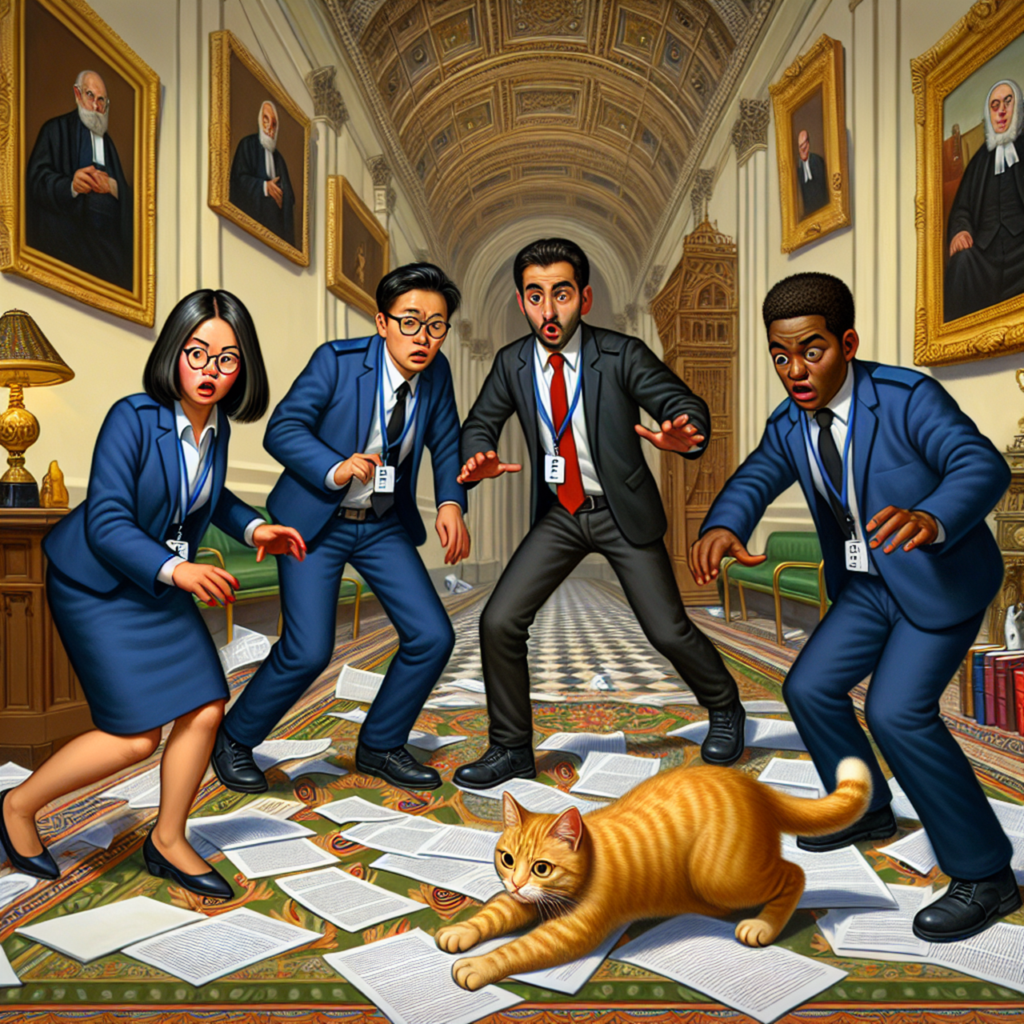South Africa's new parliament convened on Friday to elect the next president, but the public still knows nothing about which parties will join the African National Congress to govern or what policies they will pursue. The ANC, which has been in power since the 1994 general election that marked the end of apartheid, lost its majority for the first time in the May 29 vote and has been trying to form a broad-based government of national unity.
President Cyril Ramaphosa, leader of the ANC, is likely to win a new term as his party holds the most seats in parliament, but may be forced to make significant policy concessions to his political opponents. Chief Justice Raymond Zondo officially opened the new session of Parliament at 10 a.m. (8 a.m. GMT), beginning the process of swearing in lawmakers. Lawmakers, who met at Cape Town's convention centre after a fire damaged their parliamentary buildings in 2022, were due to then elect a speaker, deputy speaker and president.
As of Thursday night, the ANC said other parties, including its arch rival, the pro-business Democratic Alliance, had also agreed to join, but that a specific agreement had yet to be finalized. Helen Zille, a senior Democratic Alliance member on the party's negotiating team, said on Friday morning that details were still being worked out and that once an agreement was reached, Democratic Alliance lawmakers would back Ramaphosa for president.
“We need to push until the very end to reach an agreement,” she told state broadcaster SABC. The ANC won 159 of the 400 seats in the National Assembly, while the DA won 87. Former President Jacob Zuma's populist party Umkhonto we Sizwe (MK) won 58 seats, the far-left Economic Freedom Fighters party won 39 seats and the socially conservative Inkatha Freedom Party won 17 seats.
ANC dilemma Since the election, the ANC's biggest dilemma has been whether to cooperate with the DA, whose free-market policies make it popular with investors but unpopular with ANC voters who see it as an organisation that protects the interests of a privileged white minority.
Analysts say the inclusion of the Zulu-based IFP could boost the DA's chances of winning with ANC supporters. A deal with the EFF, which advocates seizing land from white farmers and nationalizing banks and mines, could have been more popular with grassroots ANC supporters but risked upsetting financial markets and big business.
Shortly before parliament opened, the EFF and a coalition of like-minded smaller parties said they were open to negotiations with the ANC. The EFF sees the DA as an enemy and will not work with it. “Our proposal that we can form a parliament, elect a speaker and elect a president still stands, as long as we exclude other forces that represent colonialism and apartheid,” EFF deputy chief executive Floyd Shivambu told reporters.
Zuma's MK party, a newcomer that came in a surprisingly strong third place in the election, claimed it had been robbed of victory by vote rigging and announced it would boycott the new parliament. South Africa's highest court, the Constitutional Court, dismissed MK's application to halt the parliament's sitting on grounds of electoral fraud as without merit. The Independent Electoral Commission said the election was free and fair and that no other parties were challenging the results. (Additional reporting by Nelly Payton, Tanur Anders and Sufundo Palakosov; Writing by Ester Silbon; Editing by Gareth Jones)
(This story has not been edited by Devdiscourse staff and is auto-generated from a syndicated feed.)

